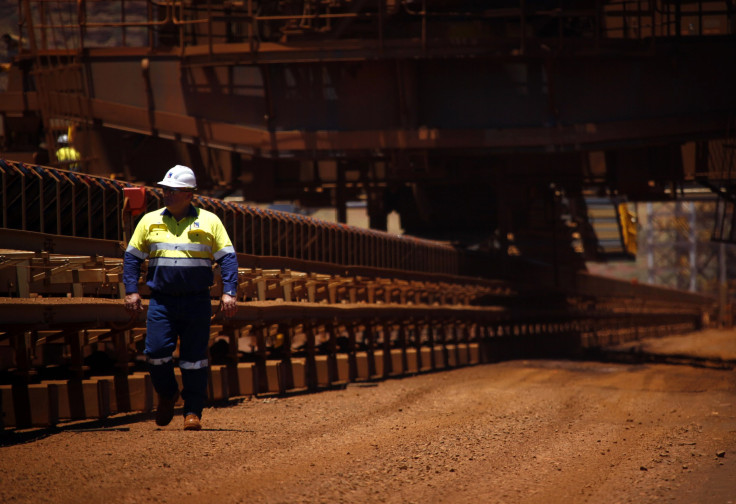Iron Ore, Coal Prices Plummet; Australia's Trade Report, Stating Imports To China, Eagerly Awaited

The price of iron ore has fallen 8.4 percent, according to data from Platts. Thermal coal prices fell 8.4 percent in January, and premium hard-rocking coal prices declined 5 percent, the Sydney Morning Herald reported. China's imports from Australia, its biggest trading partner, will be announced in an upcoming Australian trade report, which industry watchers await eagerly.
According to Reuters, iron ore exports to China from Australia's Port Hedland, which ships about a fifth of the global market for the steel-making raw material, fell 3.5 percent in January from December.
The drop was largely due to weaker demand from Chinese steel mills and the aftermath of a late December cyclone that closed the port's anchorage for nearly three days.
Shipments to China dropped to 23.31 million tonnes in January versus 24.16 million tonnes in December, data from the Port Hedland Port Authority showed on Tuesday.
Analysts have warned China's appetite for imported ore would wane in the months ahead as industrial growth cools and demand for steel weakens.
The volume of imported iron ore stacked in China's major ports has swelled to almost 93 million tonnes , the highest since November 2012.
February could also prove to be a lighter month for exports, given the heavy rains in the Pilbara iron belt, from where the port's top two users, BHP Billiton and Fortescue MetalsGroup, ship around 80 million tonnes per quarter.
Fortescue, the world's fourth-biggest producer, last week revised fiscal 2014 shipments ending June 30 to the lower end of guidance at 127 million tonnes, citing interruptions caused by the cyclone and heavy rains at its mines since then.
The company's main Cloudbreak mine was saturated with 500 millimetres of rain over a single week.
Iron ore shipments to Japan fell to 1.43 million tonnes in January from 2.07 million in December. Shipments to South Korea climbed to 2.74 million tonnes from 2.02 million tonnes over the period, Port Hedland data showed.
Overall, Port Hedland iron ore exports totalled 28.23 million tonnes in January versus 29.46 million in December, according to the port authority.
(With reporting from Reuters)
© Copyright IBTimes 2024. All rights reserved.












